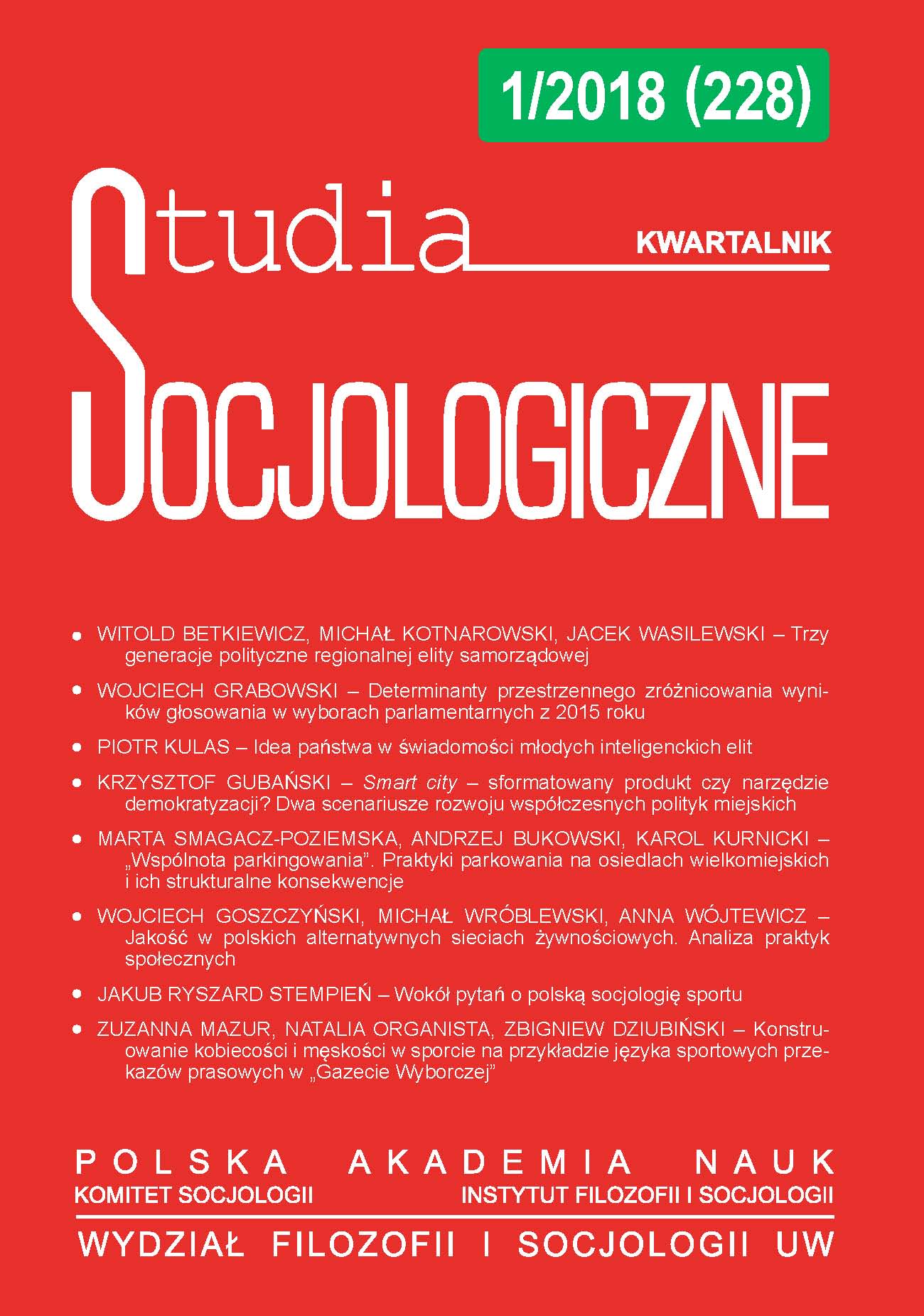Determinanty przestrzennego zróżnicowania wyników głosowania w wyborach parlamentarnych z 2015 roku
Determinants of Spatial Differentiation of Voting Results in the 2015 Parliamentary Election
Author(s): Wojciech GrabowskiSubject(s): Sociology of Politics
Published by: Instytut Filozofii i Socjologii Polskiej Akademii Nauk
Keywords: contextual approach; parliamentary election; Dirichlet regression; electoral geography
Summary/Abstract: This paper analyses the spatial differentiation of the results of voting in the 2015 Polish parliamentary election. Data of the National Electoral Commission at the level of municipalities (NUTS-5) as well as the indicators of the socio-economic development derived from the Local Data Bank of the Statistical Government are used. The aim of the empirical research is twofold. First, the impact of the economic, socio-demographic as well as historical and cultural factors on the level of support for the Polish parties is analysed. Second, the strength of the factors influencing political preferences of citizens of Polish communities (gminy) is investigated. The estimates of the parameters of the Dirichlet regression model indicate that economic variables, socio-demographic factors as well as location variables had significant impact on the results of the 2015 parliamentary election. Nevertheless, historical and cultural factors turned out to be the most important determinants. The main contribution of this paper to the existing literature is the finding that a distance between a given community (gmina) and its nearest large city has an impact on the voting attitudes of the former’s residents. The obtained results indicate that the phenomenon of spillover of liberal attitudes from the larger cities to the neighbouring communities (gminy) is present.
Journal: Studia Socjologiczne
- Issue Year: 228/2018
- Issue No: 1
- Page Range: 35-64
- Page Count: 30
- Language: Polish

